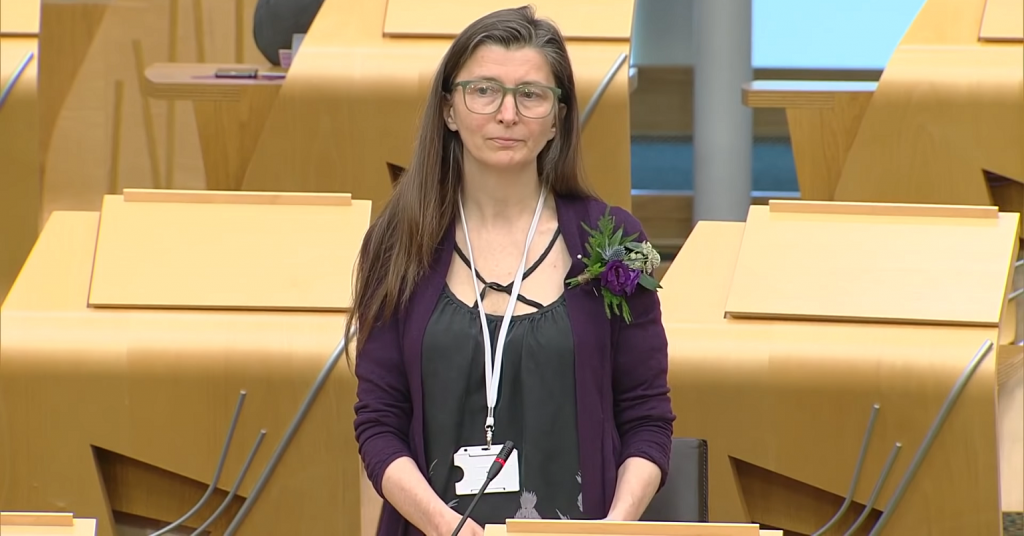A kinky vegan feminist’s response to the PETA ad
Like Alyson Macdonald, I too am a feminist and a vegan. I too support PETA’s general cause, if not their methods. I too am concerned with fighting gender and sexual violence. I experience life as a woman in a world where that violence is everywhere and where it is urgent.
I am also kinky. Kink is a central part of my sexuality and that of many others. I engage in consensual sex involving pain and power exchange. I fantasise and write porn about sex which involves serious injury – like that depicted in the PETA ad – and even rape. I also make clear distinctions between fantasy and reality – and between consent and abuse.
As a feminist (and a person) I want to respond to the PETA ad in ways that do not demonise nor gloss over already marginalised sexualities – and that enable us to engage accurately and rigorously with the issues of gender, animal and environmental violence at hand.
Unlike most of the media around the ad thus far, Alyson acknowledges that “pain is part of sex for some people.” Alyson argues, however, that “what we are being shown here is so steeped in the visual imagery of violence and abuse that it’s difficult to see how this could be a story about a couple engaging in consensual kink.” This is because, “when we first see Jessica, she looks pale, shocked, and dishevelled; wearing nothing but a coat, and limping down the street in the early morning light.” Jessica is “passive” and it is “almost as if her body is an inanimate object”.
What Alyson does not acknowledge is that dishevelment, injury, passivity, objectification and the idea of rape are all fantasies and practices which do occur, consensually, between kinky people. Sometimes, “a story about a couple engaging in consensual kink” does look like this, like Jessica.
Acknowledging this reality is uncomfortable. It makes a sex-positive feminist analysis of the PETA ad much harder. I do not have any easy answers as to where it might take us. But I do know it is necessary for grounding those analyses in the complexities of reality. Recognising these complexities does not only mean being respectful to marginal sexualities. It also means being alert to the ways in which gender and sexual violence are really at work in the ad. It is therefore important for anyone concerned with highlighting and challenging that violence.
“Without the narration,” Alyson continues, “you’d think this was a film about a woman who has just been raped.”
But there is narration. Narrative gives meaning to acts. We need to deal with this act, like any other, in its context. To fail to do so is not just inaccurate and unconvincing in relation to the ad. More: it also risks erasing the crucial difference between kink and abuse.
Kink without negotiation, consent and context would just be abuse and rape, too. The kink community therefore works hard to centre context and consent (narrative) in all its activities: in kinky sex, norms and identities as well as in relations with people and perceptions outside the kinky community. For me, it is important that we join them by doing this in our feminist analyses of the PETA ad, too.
By assessing the PETA ad against the benchmark of “consensual kink,” Alyson does begin to ask these questions. Ultimately, however, those questions cannot be answered honestly – that assessment cannot be made effectively – without engaging with the complexities of “consensual kink.” A one-line nod to its existence before racing on to some ultimate feminist goal is simply not enough – not enough to realise the purpose of that nod nor to do justice to those feminist goals.
I am not defending PETA nor the ad. As Alyson points out, PETA play on and perpetuate all sorts of horror. PETA have made it very clear that they have little concern for people – whatever their gender or sexuality, but perhaps particularly for women. Although I am a vegan, concerned for the health of animals and the environment, I am not convinced by PETA’s line of argument. In fact, I am disgusted by it. Like Alyson, I seek to challenge the perpetuation of sexism and abuse. This includes exercising concern and care for people who may be triggered by images of sexual and gender violence. It includes scrutinising the ways in which gender and sexuality are at work in every context.
As Alyson also argues, however, in this scrutiny we must not sacrifice one set of politics for another. We must recognise their intersections instead. We must recognise what else it at stake.
Just like Alyson will not “compromise [her] feminist beliefs to support a vegan organisation that doesn’t respect women,” therefore, I won’t demonise or gloss over kinky sexualities for my veganism or my feminism. In fact, I will engage kinky realities and complexities for my veganism and my feminism. To take for granted what sexualities look like – or that we all agree what they look like – further polices already over-policed bodies, genders and sexualities. It also prevents us from doing deep and accurate analysis of or responding effectively to the PETA ad.




This is obviously a huge question which I can’t answer for you but here are a few initial thoughts.
I do think it’s important that we ask these questions of ourselves. The kink community spends so much time on the defensive that it is often silent on some of these tougher questions. Although feminists often fixate on the “why would I want to submit” question, you’re right to raise the (even less comfortable) “why would I want to dominate” question.
Personally I found two things really helped me sort out my relationship between feminism and kink: 1. Post-structuralist theory – realising no act is inherently meaningful and looking at how the meanings of specific acts get constituted. Realising that consensual kink is literally not the same act as abuse. 2. Experience – doing it and feeling empowered, feeling joy and connecting with people in amazing and brave new ways. Feeling a bunch of rewarding, challenging, creative and exciting stuff. Oh yeah, and desire and pleasure! All without harm.
Why are there so many male doms? I guess this is a continuation of societal gender norms. And no, that’s not cool. But it is also not limited to BDSM – although it does somehow suck doubly when conservativism and patariarchy are dressed up as some sort of alternate sexuality. Kinky sex is in no way exempt from all the gender crap at play in all sorts of sex.
Having said that, I think/hope there is a way to recognise and play with those norms (which were are all, to some degree, constituted by) without always repeating them. And I certainly don’t want to be held prisoner by or prescribe legitimate sex by the fact of their existence.
In fact, recognising their presence, discussing it and self-consciously engaging power in every relationship is a strength of the kink community that everyone could learn from.
I agree with what you’re saying but I want to know what the implications are – are there any?
I think there’s something inherently problematic about BDSM, and I say that as a sex-positive kinky feminist. Is there something weird about me wanting to dominate people? Why are so many of the doms I meet men?
Sorry if I’m opening a can of worms here, I just am quite confused about the relationship between my kink and my feminism, it seems really hard to negotiate. Was wondering if the author has any thoughts.